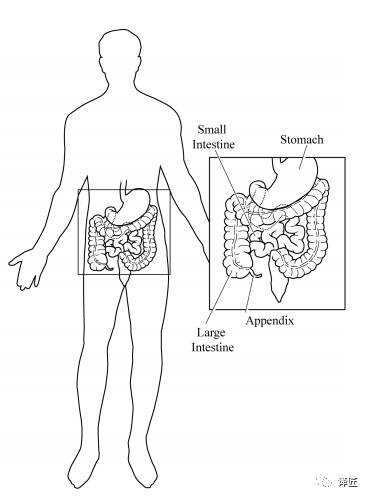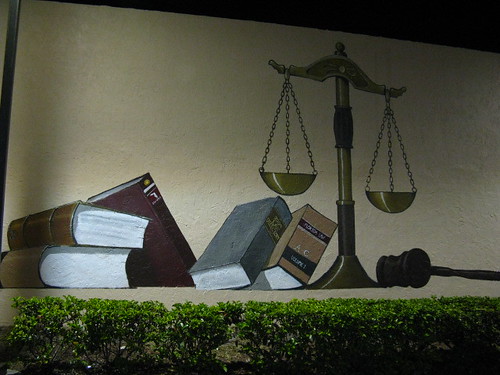
医学翻译:阑尾切除术
Appendectomy
阑尾切除术
Appendectomy is a surgery to remove the appendix. The appendix is a small pouch that comes off the large intestine. The appendix sometimes gets blocked and becomes infected and swollen. Signs of an infected appendix include abdominal pain in the lower right side, fever, poor appetite, nausea and vomiting. If the appendix bursts, it can make you very sick.
阑尾切除术是切除阑尾的手 术。阑尾是大肠末端的细长 管腔。阑尾有时候会被堵 塞,导致发炎和肿胀。阑尾 感染的症状包括腹部右下方 疼痛,发烧,食欲不振,恶 心和呕吐。如果阑尾破裂, 可能导致严重后果。
There are two ways to do this surgery:
• Open appendectomy - a single incision is made in the abdomen. The doctor works through this larger incision to remove the appendix.
• Laparoscopic appendectomy - 3 or 4 small incisions are made in the abdomen. The doctor uses a camera and tools through the small incisions to remove the appendix. With this type of surgery, you may recover faster, have less pain, less scarring, fewer wound problems and often spends less time in the hospital.
阑尾切除术有两种方式:
• 开腹阑尾切除术(Open appendectomy)- 在腹部 开一个切口。医生通过这 个切口,切除阑尾。
• 腹腔镜阑尾切除术 (Laparoscopic appendectomy)-在腹部 开 3 或 4 个很小的切口。医生通过这些小切口,使用摄影机和工具切除阑尾。施行此手术,可能康复更快,疼痛较小,疤痕较小,伤口问题较少,一 般住院时间也较短。
An adult family member or friend needs to come with you to take you home after your surgery. It is not safe for you to drive or leave alone.
须有成年家属或朋友陪同,以便手术后送您回家。您在手术后单独驾车或独自离开是不安全的。
To Prepare
• Tell your doctor what medicines you are taking including prescriptions, over the counter medicines, vitamins and herbs.
• If you have any allergies to medicines, foods or other things, tell the staff.
• Do not eat or drink anything, including water, until after you have your surgery.
准备工作
• 向医生说明正在服用哪些处方药物、非处方药物、维生素和草药。
• 如果对药物、食物或其它物品过敏,须向工作人员说明。
• 手术前不要吃东西或喝饮料(包括水),等到手术后再吃再喝。
During Surgery
• You will wear a hospital gown.
• An IV (intravenous) is put into a vein in your arm for giving medicine and fluids.
• You are taken on a cart to the surgery room. You are helped onto the surgery table. A belt may be put over your legs for your safety.
• You will be given medicine so you will sleep through the surgery. The medicine will be given through the IV or a face mask.
• Your abdomen is cleaned and sheets are put over you to keep the surgery area clean.
• An incision is made in your abdomen. With laparoscopic, 3 or 4 incisions are made.
• The appendix is removed.
• The incision(s) are closed with stitches, staples or special tapes called steri-strips.
• If stitches or staples are used, a bandage is taped over them.
手术程序
• 会让您换上医院的罩衣。
• 在手臂上插入静脉注射导管,注射药物和流体。
• 会让您躺在推车上推入手术室,由人协助上手术台。为安全起见,可能用带子固定您的腿。
• 您会接受麻醉药,在手术过程中处于睡眠状态。麻醉药通过静 脉注射或面罩给药。
• 清洁腹部,用布盖在您的身上,以保持手术部位的清洁。
• 在腹部开一个切口。如果是腹腔镜手术,要开 3 或 4 个切口。
• 切除阑尾。
• 用缝合线、缝合器或特殊胶带(免缝胶带)封闭切口。
• 如果使用缝合线或缝合器,则表面要用绷带包扎。
After Surgery
In the Hospital
• You are taken to the recovery room where you are watched closely until you wake up and are doing well.
• Your breathing, blood pressure and pulse are checked often.
• Your doctor will talk to you about your surgery and when you can expect to go home.
• Medicines given during the surgery will make you sleepy. You will need to have an adult family member or friend take you home for your safety.
手术后
住院期间
• 进入康复室接受密切观察,直至醒来并且状态良好。
• 经常检查您的呼吸、血压和脉搏。
• 医生会向您介绍手术情况,说明什么时间可以出院回家。
• 手术中使用的药物会使您非常嗜睡。为了您的安全,需要有家 属或朋友送您回家。
At Home
• Rest.
• Take your medicines as directed by your doctor.
• Call your doctor to schedule a follow-up visit.
• You can take a shower. Do not take a tub bath for one week after your surgery.
• Remove the bandage(s) over the incision(s) the next day before you shower. Carefully wash the incisions with soap and water and pat them dry. Put new band-aids over your incisions. Change your band-aids any time they get wet or dirty.
• If you have steri-strips, leave them alone. They will fall off on their own.
在家中休养期间
• 休息。
• 遵医嘱服用药物。
• 致电给医生,安排复诊。
• 可以洗淋浴。手术后一周内,切勿洗盆浴。
• 洗淋浴前,取下刀口的绷带。取下绷带后,仔细用肥皂和水清 洗刀口,把水拍干。刀口更换新的绷带。绷带潮湿或变脏后, 都要更换。
• 如果使用免缝胶带,不要动免缝胶带。免缝胶带会自动脱落。
• It may be hard for you to have a bowel movement after surgery. Walking and eating high fiber cereals, beans, vegetables and whole grain breads will help. Drinking 8 glasses of liquids each day may also help.
• You may be taught to do deep breathing and coughing exercises to keep you from getting a lung infection after surgery. Deep breathe and cough every hour while you are awake and if you wake up during the night. It may help to use a pillow to support your incision(s) when you cough or deep breathe.
• Do not lift objects over 10 pounds for three days.
• Do not drive until your doctor tells you it is okay and you are no longer taking pain medicine.
• Talk to your doctor or nurse about other activity limits. You should be able to return to normal activities in about 1 to 3 weeks.
• 手术后,您可能大便困难。走动,吃高纤维谷物、豆类、蔬菜和全麦面包,均有助于缓解大便困难。此外,每天喝 8 杯流质,可能也有帮助。
• 为防止手术后发生肺部感染,您可能需要做深呼吸和咳嗽练习。清醒时每小时做一次深呼吸和咳嗽,夜晚醒来时也要做。咳嗽或深呼吸时,可用枕头扶持刀口。
• 手术后三天内,不应提举超过 4.5 公斤 (10 磅的)重物。
• 在医生同意,并且停止服用止痛药物之前,您不得驾车。
• 询问医生或护士必须遵守哪些其它的活动限制。您在手术后 1 至 3 周内应可恢复正常活动。
Call your doctor right away if you have:
• Pain in the abdomen or shoulder area that does not go away or gets worse
• Increased redness, bruising or swelling
• A fever over 101 degrees F
• Chills, a cough, or you feel weak and achy
• Vomiting
• Skin that is itchy, swollen skin or a new rash
• Trouble having a bowel movement or have diarrhea often
如果出现以下情况,立即致电医生﹕
• 腹部或肩部疼痛,持续不退或恶化
• 发红、瘀伤或肿胀加剧
• 发烧超过摄氏 38 度 (华氏 101 度)
• 畏寒、咳嗽或感到虚弱和头痛
• 呕吐
• 皮肤搔痒、肿胀或出现新皮疹
• 大便困难或经常腹泻
Call 911 right away if:
• The incisions come apart.
• There is new bleeding from the incisions.
• You have trouble breathing all of a sudden.
• You have chest pain.
如果有以下情况,立即致电 911:
• 刀口迸裂。
• 刀口重新出血。
• 突然呼吸困难。
• 胸痛。
Talk to your doctor or nurse if you have any questions or concerns.
如果有任何疑问或担心,请咨询医生或护士。




